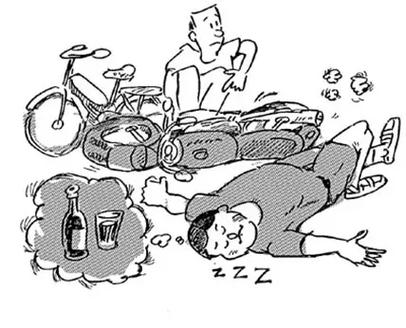Choosing Artificial Sweetener Snacks During Alcohol Cessation
When you decide to quit drinking, you embark on a journey that requires not only mental resilience but also physical adjustments. One of the lesser-discussed aspects of alcohol cessation is the change in dietary habits, particularly the craving for sweetness that often emerges as the body recalibrates. Many people find themselves reaching for snacks to replace the ritual of drinking, and artificial sweeteners often come into play as a seemingly healthier alternative. However, the role of artificial sweeteners during this period is complex and warrants careful consideration.
Alcohol, especially in regular consumption, affects the body’s blood sugar levels. When you stop drinking, your system may experience fluctuations that trigger sugar cravings. This is partly because alcohol is high in empty calories and can cause insulin resistance over time. As the body detoxifies, it seeks quick energy sources, often in the form of sugars or carbohydrates. Reaching for a sugary snack might feel like a natural response, but it can lead to energy crashes and even reignite addictive patterns. This is where artificial sweeteners come into the picture—they offer sweetness without the caloric load, making them an attractive option for those trying to manage weight or blood sugar while avoiding alcohol.
However, the use of artificial sweeteners is not without controversy. While they can help reduce calorie intake and provide a sense of indulgence without the guilt, some studies suggest that artificial sweeteners might perpetuate sugar cravings by maintaining a desire for sweet tastes. For someone in alcohol recovery, this could potentially mimic the cycle of craving and gratification that characterized their relationship with alcohol. The key is to understand how these sweeteners work and to use them mindfully rather than as a wholesale replacement for addressing deeper nutritional needs.
There are several types of artificial sweeteners commonly found in snacks, such as aspartame, sucralose, stevia, and saccharin. Each has its own profile in terms of taste, aftertaste, and metabolic impact. For example, stevia, derived from a plant, is often seen as a more natural option, though it is still highly processed in its commercial form. Sucralose, known by the brand name Splenda, is heat-stable and commonly used in baked goods. Aspartame, found in many diet sodas, has been the subject of debate regarding its long-term health effects, though major health organizations consider it safe in moderate amounts.
For someone quitting alcohol, the primary goal should be stabilizing blood sugar and supporting overall health. While artificial sweeteners can be part of this strategy, they should not be the cornerstone. Whole foods—such as fruits, nuts, and whole grains—provide essential nutrients, fiber, and natural sugars that are metabolized more slowly, offering sustained energy. If you do opt for artificially sweetened snacks, consider them an occasional treat rather than a daily habit.
Another important factor is the psychological aspect of craving. Quitting alcohol often involves breaking habits and rituals, and replacing them with healthier alternatives. If you find yourself consistently turning to sweet snacks—whether artificially sweetened or not—it might be helpful to examine whether this is filling an emotional void left by alcohol. Mindfulness practices, such as noting when and why cravings arise, can help you make more intentional choices. Sometimes, a craving for something sweet can be addressed with a small portion of dark chocolate or a piece of fruit, which provides satisfaction without over-reliance on processed alternatives.
It’s also worth noting that some artificial sweeteners can have a laxative effect or cause digestive discomfort in sensitive individuals, especially when consumed in large quantities. During alcohol cessation, the body is already in a state of adjustment, and digestive health can be fragile. Paying attention to how your body responds to different sweeteners is crucial. If you notice bloating, gas, or other issues, it may be better to avoid certain types or reduce your intake.
In the context of weight management, artificial sweeteners can be beneficial. Alcohol is calorie-dense, and quitting often leads to weight loss or a desire to maintain a healthier weight. Artificially sweetened snacks can help bridge the gap between craving something sweet and consuming excess calories. However, it’s important not to see these products as a “free pass.” They should complement a balanced diet rich in proteins, healthy fats, and complex carbohydrates to ensure you’re getting adequate nutrition.
Finally, consider the social and environmental triggers that might lead you to reach for snacks. If you used to drink in certain situations—such as after work or at social gatherings—finding new routines is essential. Instead of keeping artificially sweetened snacks on hand for every craving, try incorporating activities like walking, reading, or engaging in a hobby to distract yourself. When you do snack, make it an intentional act: choose something that truly satisfies you, whether it’s a small treat with artificial sweeteners or a naturally sweet option like berries or yogurt.

In conclusion, artificial sweeteners can play a role in supporting your journey to quit alcohol, but they are best used in moderation and as part of a broader strategy focused on whole foods and emotional well-being. By paying attention to your body’s signals and making mindful choices, you can navigate sugar cravings without falling into patterns that might undermine your progress. Remember, the goal is not just to replace alcohol with another substance but to build a healthier, more balanced lifestyle.




发表评论